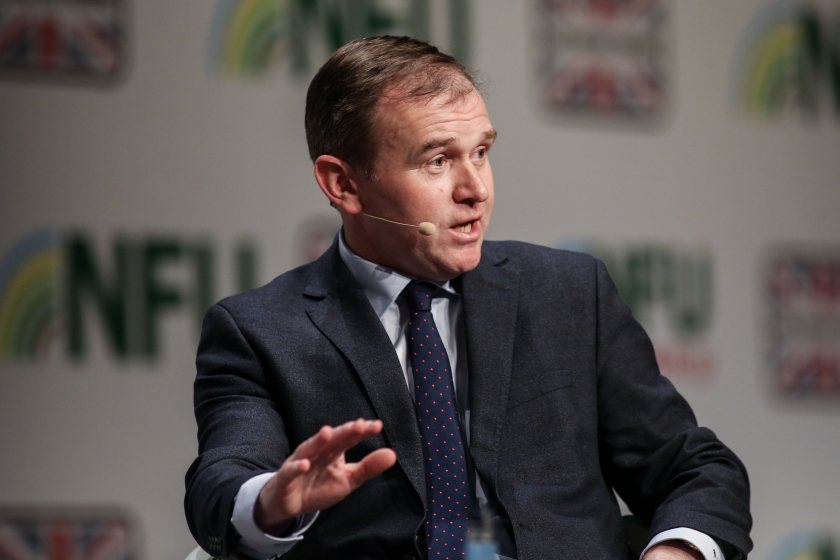
Defra Secretary George Eustice has denied that the UK is sleepwalking into a food crisis, despite heavy criticism of the government’s post-Brexit trade agreements.
Following the decision to leave the EU, farming representatives pleaded with the government not to sign trade deals that would allow imports of foods produced to lower environmental and animal welfare standards.
Last year the independent body set up to advise the government on the interests of agriculture in trade negotiations said that Britain’s farming standards should not be undermined.
Yet the government has since agreed deals with Australia and New Zealand, which British farming leaders have criticised for allowing lower standard imports.
The Oxford Farming Conference, held online because of the pandemic, was attended by Mr Eustice, along with Lesley Griffiths, Minister for Rural Affairs in Wales and Edwin Poots, Minister of Agriculture in Northern Ireland.
One member of the public asked them: “Is the UK sleepwalking into a food crisis in the same way as we have sleepwalked into an energy crisis through offshoring?”
Mr Eustice denied this was the case: “I don’t think it is. We have made it a legal requirement under the Agriculture Act for the government to do a comprehensive review of food security every three years.
"The first report from that was published before Christmas. It showed that we actually have high levels of self sufficiency in those key areas where we are able to produce certain foods.
"Our overall self sufficiency as a country has been relatively stable since the turn of the millennium, over that last 20 years or so.
"It currently runs at about 77% for the foods we can produce - we produce more milk and more lamb than we consume," he explained.
"And we have seen an increase in self sufficiency in key sectors like soft fruit and other elements of horticulture and also in poultry as well.
"It’s generally a positive picture at the moment but we are not complacent and we do have to keep an eye on that food security and that’s why every three years this will be subject to further review.”
However, Mr Poots raised concern: “I fear it could be the case. It may not happen in five years but it can happen much more quickly than people would anticipate, and we saw the problems in the early days of Covid.”
During the conference he criticised the UK's trade deals: “The trade deals that are being done with New Zealand, Australia and I have no doubt with many other parts of the world, which we welcome on one hand, will have an impact on agri-food.”
Such deals were very lucrative to food producing countries from other parts of the world, he said, including food producing countries which may not have the same 'environmental consciousness' as the UK.
“The result of that will be that we import cheaper products from other parts of the world which are produced in a less environmentally sustainable way," Mr Poots added.
"That is not a policy which I want to be associated with or a policy that I want to engage in. I want to ensure that, in terms of our social conscience, we develop a food policy in the UK which produces that food in an environmentally sustainable way, which ensures that local communities, local rural communities, are sustainable because agriculture is the heart beat of the rural community.”
Lesley Griffiths added: “I think what is really important is getting or sustainable farming scheme right so that we can become one of the best countries in the world for sustainable farming, making sure we meet our global obligations without offshoring food production to regions and countries that have lower standards than we do.
"I think Edwin is quite right that the public health crisis we have had with the global pandemic has made us realise that we need to look at our food security.”
The Trade and Agriculture Commission was established under pressure from the NFU, which was concerned that UK quality, environmental and animal welfare standards could be traded away in order to secure post-Brexit deals with countries like the US.
It said in an executive summary of its report that the UK should “match tariff-free market access to relevant climate, environment, animal welfare and ethical standards, remedying competition issues arising where permitted imports do not meet relevant UK and international standards.”
